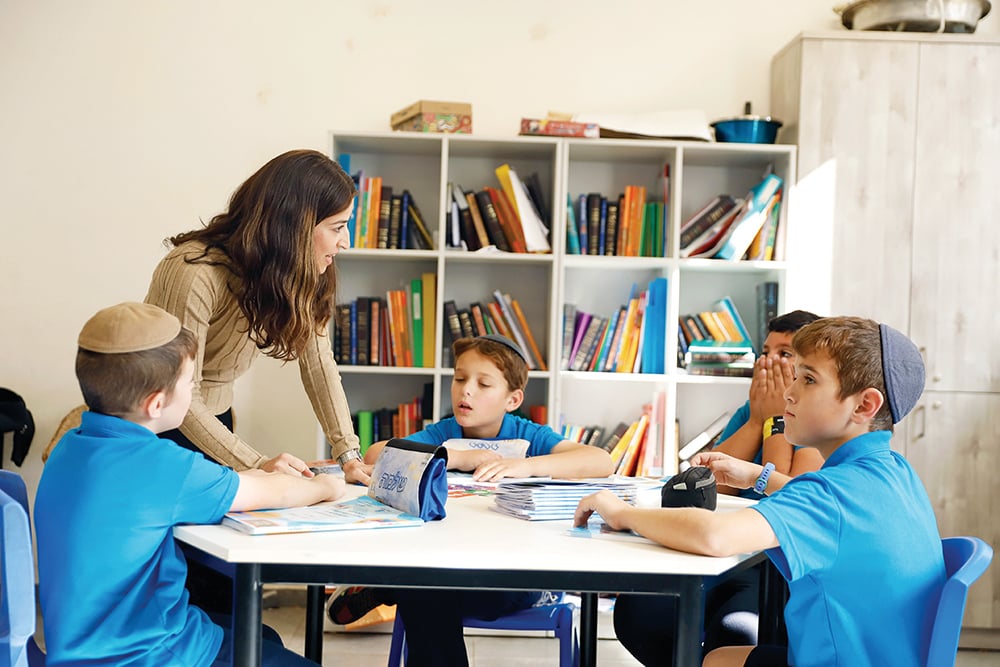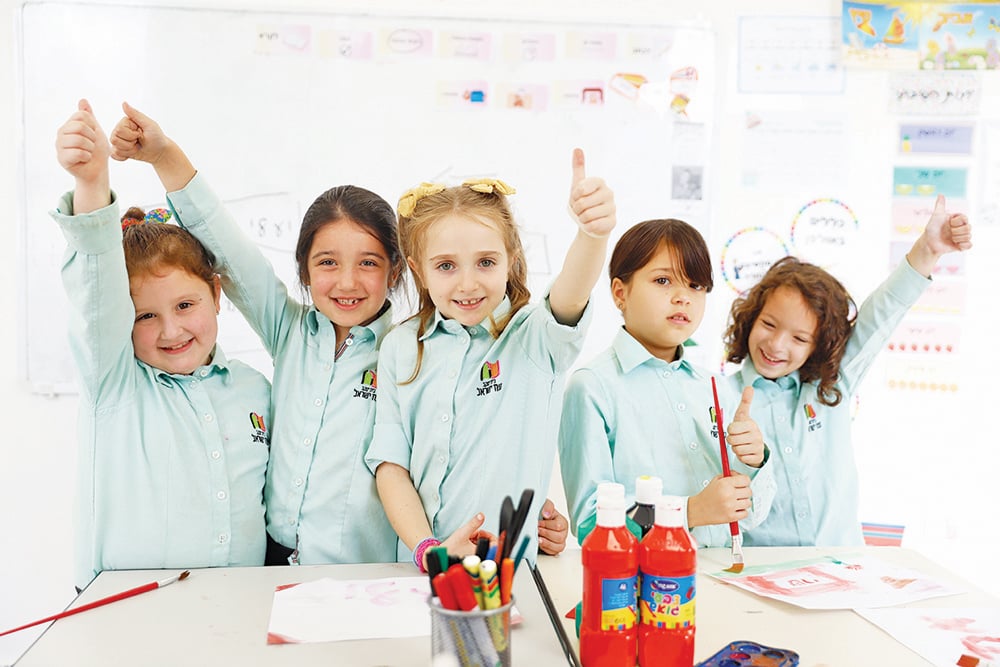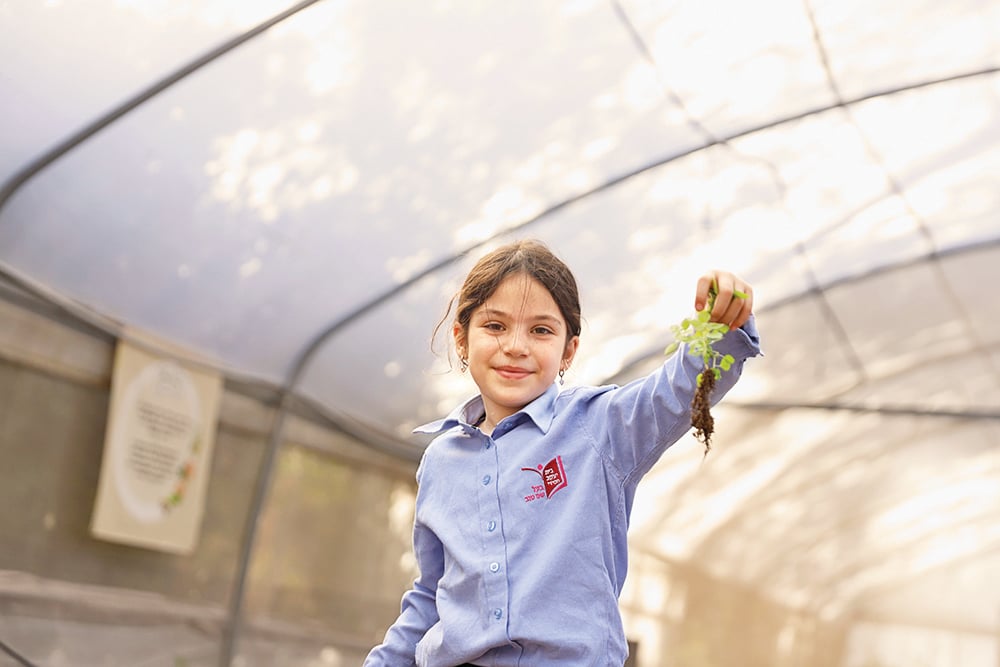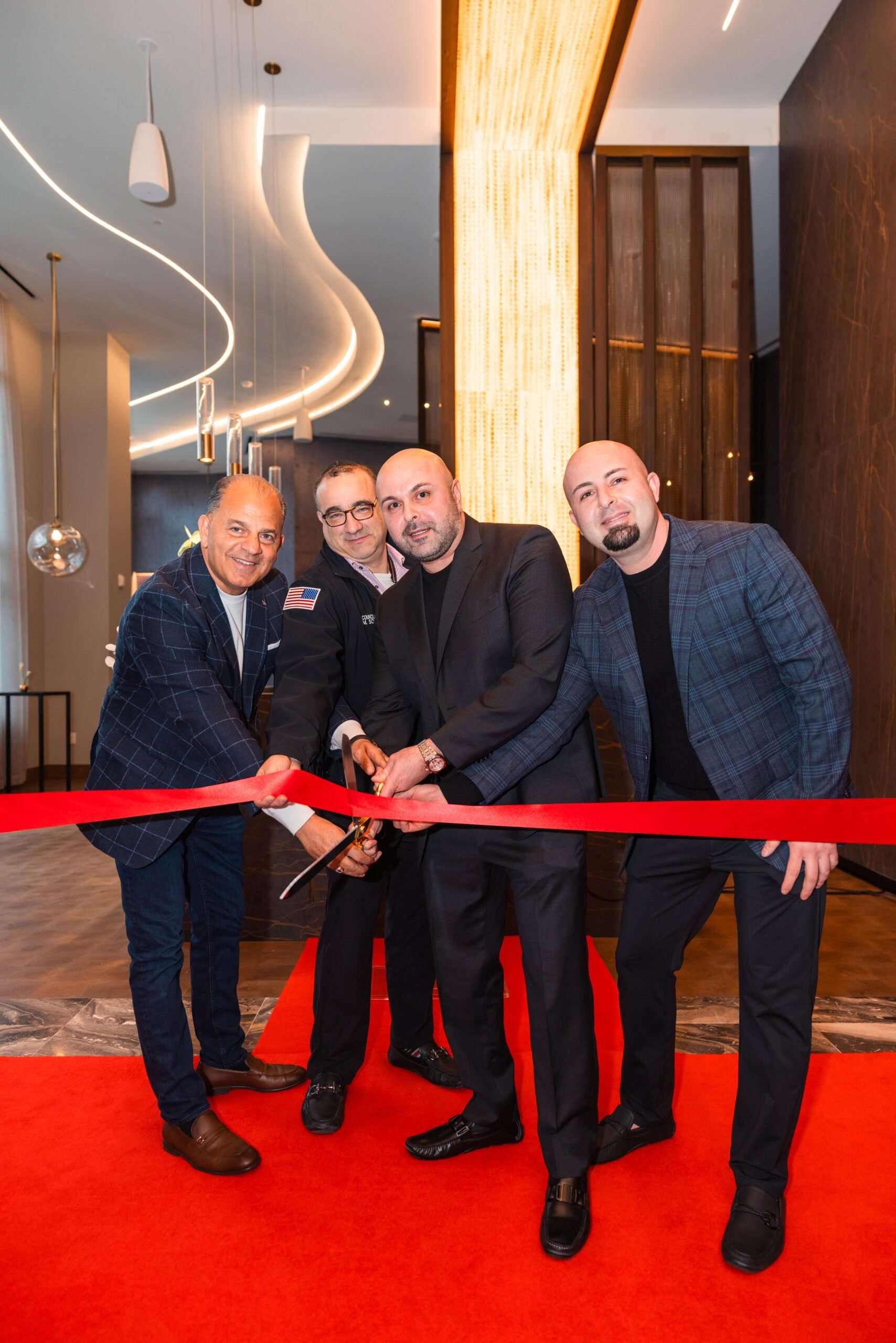
In the heart of Beit Shemesh, a city where the tapestry of American and Israeli cultures intertwine, the Netzach Educational Network is redefining traditional haredi education. With eight institutions in Beit Shemesh alone as well as schools throughout Israel, Netzach is successfully blending progressive pedagogical methods with time-honored educational models.
American parents often prioritize a balance of academic excellence, character development and individualized attention in their children’s education. Netzach is accomplishing that and much more for students of all ages and communities.
Outstanding examples are the Baal Shem Tov Chassidic elementary schools, with a branch for girls headed by Gitty Bernstein and a branch for boys under the leadership of Rabbi Uri Bakenroth. Fully separate, both operate under the philosophy of blending foundational Chasidic values with cutting-edge educational methods.
“One of our main goals is to integrate advanced digital learning tools that will enrich students’ learning experience and enable the expansion of personalized learning,” explained Bernstein. “We have introduced technologies such as apps and digital learning platforms for learning Tanach and Mishnayot interactively.”

(credit: Netzach Educational Network)
Bernstein stressed the careful filtering of all technology, ensuring that the digital learning environment is safe and compatible with Chasidic values and the school’s educational framework. “The implementation of these means not only enriches learning but prepares students to cope with a changing world.”
Beyond academics, the school is a cornerstone for building a supportive community environment. Bernstein shared a touching example: “When a mother from our community had to be hospitalized, the mothers and the school staff mobilized to prepare Shabbat meals for her family, showcasing the strong bonds and mutual assistance that characterize our community.”
Both principals described their schools’ system of differentiated learning, whereby each child is taught in a way that suits them best and nurtures their creativity and potential. “We also have integrated interactive programs for learning subjects such as mathematics, reading and English, tailored to each student’s pace of progress,” said Rabbi Bakentroth.
Another successful and growing institution in the Netzach network is Yeshivat Chayei Olam, under the guidance of veteran educators Rabbi Akiva Homnick and Rabbi Yehoshua Edelstein. Chayei Olam has pioneered a shift toward incorporating American educational principles into the traditional yeshiva system. By equipping students with the tools for higher education and integration into broader Israeli society, Yeshivat Chayei Olam prepares them to contribute meaningfully while maintaining their deep commitment to Torah values.

Rabbi Homnick emphasized the holistic nature of their education, “This isn’t just about passing exams. It’s about molding Bnei Torah who are equipped to face life’s challenges with joy, inspiration and a broadened perspective.” The yeshiva curriculum covers a wide range of subjects from Gemara to mathematics and science, ensuring students are well-prepared for the Israeli matriculation exams. Moreover, the school offers facilities for basketball, music, and arts, fostering all aspects of a student’s potential.
Rabbi Menachem Bombach, founder and head of the Netzach Educational Network, reflected on the broader implications of this educational philosophy. “When we give haredi children the tools to understand the modern world, we’re not weakening their identity; to the contrary, we’re strengthening their ability to live their faith through choice and strength,” he explained. This vision is crucial not only for the haredi community but for all of Israel, aiming to build a society where every segment can contribute uniquely and powerfully.
Through these institutions, Netzach Educational Network is not only impacting the landscape of religious education in Beit Shemesh but also setting a benchmark for other cities across Israel, including Jerusalem, Bnei Brak, Holon, Petach Tikvah and Beitar.










